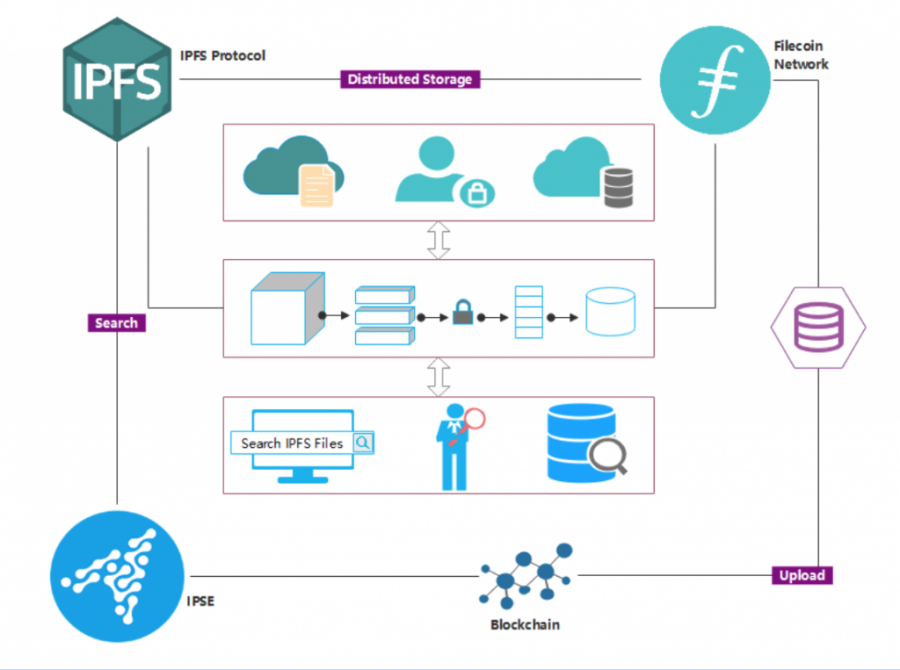IPSE: Distributed Search,Coming in the Future

As of December 2018, the number of Chinese netizens reached 829 million, with 56.53 million new Internet users added for the year, and the number of users was growing, according to the 43rd Statistics Report on the Development of China's internet Network, released by the China Internet Network Information Center. The Internet ushered in the era of big data, and search engines have encountered no small challenges. Centralized search has been difficult to develop today, at the same time, the distributed search engines represented by IPSE has emerged. Now IPSE has landed on the world's largest Dapp eco-platform DappReview, and in the future, will gradually opoen up source code, with great potential for development.
Drawbacks of Centralized Search Engines
Now information technology has entered the era of big data and cloud computing. Internet technology innovation is constantly breaking through. And search engines, as the portal of internet and the most applicable tools, will also tremendously change. At present, the development of search engine technology relatively falls behind. Distributed search engine technology is still rare. Most traditional search engines are centralized architecture design, which has the following disadvantages. First of all, the system reliability is poor: the centralized architecture has limited computing power, not able to cope with a large amount of data and information. Secondly, insufficient extensibility to meet the increasingly complicated data processing needs. In the meanwhile, the size of search engine users is still expanding, even beyond the coverage of communication tools.
IPSE’s goal is to solve these pain points, play the best performance of distributed search engine with enhanced reliability and scalability. It largely leverages distributed technology into the search engine, guiding the development direction of distributed search engine.

What is the Future?
In IPSE's distributed search mode, all information on the Internet will be unique, permanent and can be found by content on a distributed peer-to-peer network. Distributed search engines utilize distributed computing technology architecture that enables every computer across the cluster to collaborate to complete crawling, indexing, and searching capabilities. Distributed search engine not only solves problems faced by traditional ones, such as low processing ability of massive data, inefficiency of index and search, but also has better security performance, stronger fault tolerance, higher efficiency, and more convenient maintenance, making its service undoubtfully perfect.
Distributed search method uses distributed technology to make the network larger storage, greater computing power, and lower costs. There’s no doubt that it provides universities, enterprises and other research institutions with a broader research platform and development space, and a new way for intellectual property rights protection.

Technology Backup of Distributed Search
In the field of distributed computing, distributed search applies the distributed computing framework Hadoop, which has the advantages of low cost, high efficiency, high fault tolerance, high reliability and high scalability, making it easy for developers to architect and use. The user experience is much improved to develop and run applications on Hadoop to process massive data.

At present, IPSE mainly deploy P2P-based distributed search engine. P2P systems generally use a decentralized topology and organize the network through distributed bulk list (DHT) technology. DHT is a huge hash list maintained by a large number of nodes in the wide area. It uses distributed hash computation to solve structured distributed storage problem. Through the distributed hash list, the file can be accurately matched to find, to ensure that the network can be found after a limited number of hops.
Thus, distributed search engine will be the main trend of this field, as well as the field of Internet research. With the commercialization of search engines, the future distributed search engine will continue to develop. A new era of search is coming.
Disclaimer. This press release is paid and provided by a third-party source. This press release is for informational purposes only and should not be viewed as an endorsement by CoinIdol. We take no responsibility and give no guarantees, warranties or representations, implied or otherwise, for the content or accuracy. Readers should do their own research before investing funds in any company.
Price
News
Price
Price
Price

(0 comments)